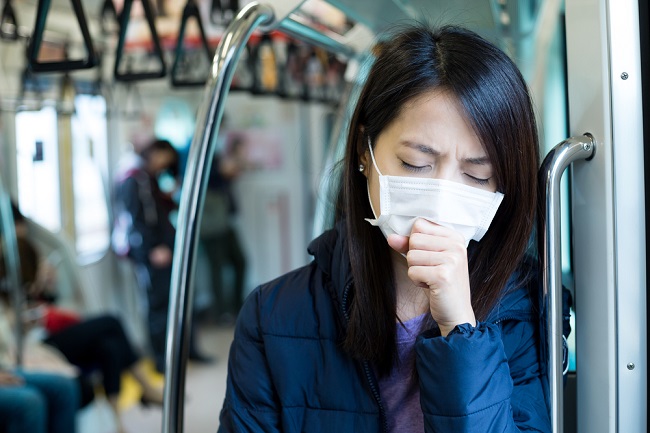Common Infectious Diseases in Indonesia
Infectious diseases are infectious diseases caused by microorganisms, such as viruses, bacteria, parasites, or fungi, and can move to other healthy people. Some common infectious diseases in Indonesia can be prevented through vaccination and clean and healthy lifestyle.
Infectious diseases can be transmitted directly or indirectly. Direct transmission occurs when bacteria in the sick person move through physical contact, such as through touch and kiss, through the air when sneezing and coughing, or through contact with body fluids such as urine and blood. The person who transmits it may not show symptoms and does not look like a sick person, if he is only a carrier ( carrier ) of illness.

In addition to the deployment of the above methods, infectious disease also can be spread through animal bites, or physical contact with body fluids of animals, as well as through contaminated food and drink disease-causing microorganisms.
Infectious diseases can also move indirectly. For example when touching the doorknob, water tap, or iron pole handle on a contaminated train. Germs can infect if you touch your eyes, nose, or mouth without washing your hands first after touching these items.
Common Infectious Diseases in Indonesia
Infectious diseases are generally more at risk of people who have weak immune systems and live in environments with poor hygiene conditions. Infectious diseases can also increase at certain times, for example in the rainy season or flood. Symptoms and signs of infectious diseases depend on the type of microorganism that causes infection. In Indonesia, infectious diseases which generally occur include:
- Acute Respiratory Infection (ARI)
Respiratory tract infections can affect the nose, throat, airways, and lungs. ARI begins with heat accompanied by one or more symptoms of sore throat or swollen pain, dry or phlegm cough, and runny nose. This condition is often caused by viruses, but can also be caused by bacteria. ARI caused by a viral infection will usually improve within 3-14 days. ARI can be prevented by behaving in a clean and healthy way, getting used to washing hands. Also pay attention to the ethics of coughing and sneezing, and use a mask so that viruses and bacteria do not infect others. - Diarrhea
Diarrhea is a bowel movement (BAB). This disease is characterized by defecation more than three times a day, accompanied by a feeling of heartburn, with liquid stool consistency, and can be accompanied by blood and/ or mucus. Diarrhea may be considered trivial even though it can potentially cause death, especially in infants. Diarrhea is transmitted through water, soil, or food contaminated with viruses, bacteria, or parasites. - TB
TB (tuberculosis) is still the most killer among infectious diseases. Based on WHO data in 2017, there are an estimated 1 million TB cases in Indonesia. TB is caused by bacteria that attack the lungs, but the bacteria can also invade other body parts like bones and joints, brain (meningitis TB), lymph nodes (glands TB), and pericardium. This bacterium is transmitted through the air when the patient coughs or sneezes. TB can be prevented through the BCG vaccine. - Dengue fever
Dengue fever is an infectious disease caused by dengue virus infection. This virus infects humans through the bite of Aedes aegypti and Aedes albopictus mosquitoes. Dengue fever is a seasonal disease that is common in tropical countries. In Indonesia, this infectious disease occurs more during the rainy season. Dengue fever can develop into a more severe condition, namely dengue hemorrhagic fever (DHF). - Worms
Worms are caused by hookworms, tapeworms, and pinworms that infect the intestine. Worms can cause anemia (lack of blood), weakness, and sleepiness, so productivity decreases. This is because worms absorb nutrients that the body needs such as carbohydrates and proteins. In pregnant women, intestinal worms can cause low birth weight babies and problems with childbirth. Worms are transmitted through direct contact, for example when dirty hands are put into the mouth, or indirectly when you touch food or objects that contain worm eggs. - Skin disease Scabies and ringworm are contagious skin diseases that are suffered by many Indonesians. Transmission of this disease is related to personal hygiene and the environment.
In addition, leprosy is still suffered by some Indonesians. Symptoms include white or red spots on numb skin. Leprosy can be transmitted through sprinkling of saliva, sneezing, or contact through injured skin. This disease can cause permanent disability if not treated early. - Malaria
Malaria is an infectious disease caused by parasites and is also transmitted through mosquito bites. Patients with malaria generally show symptoms of fever, chills, headaches, sweating, muscle aches, accompanied by nausea and vomiting. Malaria is an endemic disease with areas that still have high cases in eastern Indonesia. People living in endemic areas of malaria have the highest risk of contracting this disease. - Diphtheria
Diphtheria is an infectious disease caused by bacteria. Symptoms include fever and inflammation of the lining of the upper respiratory tract, nose, and skin. In 2017, diphtheria was once an extraordinary case in Indonesia. This condition occurs because it is suspected that there is a group that is easily infected with diphtheria due to not getting vaccinated or the vaccine status is incomplete.
In the past, polio was a common infectious disease in Indonesia. But since 2014, Indonesia has been declared free of polio. In addition to polio, tetanus and smallpox were also successfully suppressed so that they were no longer considered a major health problem. This is a success obtained from immunization given nationally. Some infectious diseases like flu, polio, hepatitis B, measles, smallpox, diphtheria and TB can indeed be prevented by giving vaccines.
Prevention of infectious diseases can also be pursued through healthy living habits. Of whom do not spit, wash your hands, do not wear personal equipment along with others, as well as eating healthy and nutritious food to enhance the body's resistance to disease.
Label : Health
Comments
Post a Comment